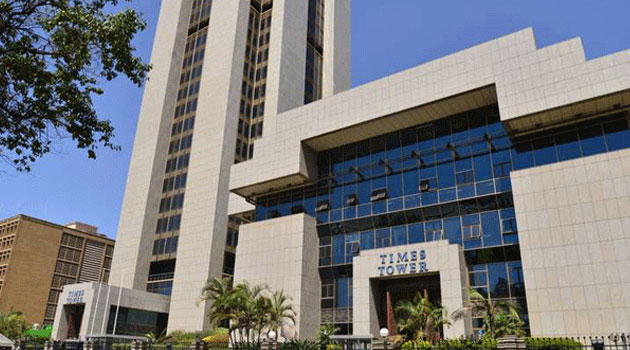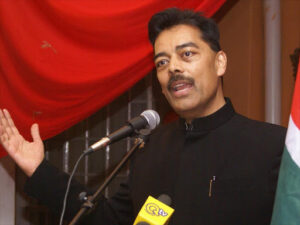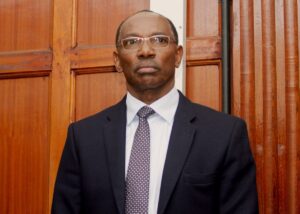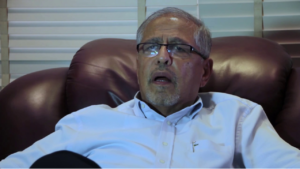Investigations
Intelligence: How Crafty Businessmen Steal Billions From KRA In Tax Evasion

Tax crimes such as tax evasion and corruption are top on the list of factors that substantially continue to impair revenue collection efforts across the world. In the process, colossal amounts of money are lost every year.
In an article published by The Borgen Project in 2019 titled ‘Tax evasion in Sub-Saharan Africa’, the Organisation for Economic Co-operation and Development (OECD) estimates that Africa loses $50 billion annually to tax evasion.
The taxman missed its target for the five months to November last year by Sh100.72 billion compared with a similar period in 2019. Treasury data shows that the KRA collected Sh527.73 billion in the July-November 2020 period, a 16.03 percent drop compared with Sh628.46 billion a year ago.
Given the depth of tax crimes as an impediment to economic growth, there is a dire need to tighten the noose on the vice by all means possible.
Closer home, the fight against tax evasion has in the recent past taken a different approach whose end goal is to decimate the vice as effectively as possible.
The Kenya Revenue Authority (KRA) has, notably, prioritised combating tax evasion in its efforts to enhance revenue collection.
In the new approach to combating tax evasion and other tax related crimes, the KRA is leveraging on the immense potential of intelligence gathering and analysis, among other strategies.
The intelligence management function has been key in the collection of information relating to tax evasion, cyber-crime and corruption. The function has continued to enhance the capacity to penetrate and quash tax evasion cartels.
The outcomes registered lately show that the intelligence-driven strategies are bringing down intricate tax evasion webs with unmatched efficacy.
In the 2019/2020 financial year, for instance, the KRA successfully foiled tax evasion schemes which could have seen the government lose approximately Sh259 billion.
Through intelligence gathering and analysis, the KRA also managed to profile 1,309 individuals for tax purposes in the financial year that ended in June 2020.
In the same period, 367 tax evasion cases worth Sh65.93 billion were filed. From the cases, 303 were prosecuted for tax fraud. This translated to a performance of 51 percent. In the process, the KRA recovered Sh62.8 billion in revenue.
To widen the scope of nabbing the tax cheats, KRA earlier this year announced an expansion program of sleuths by hiring 2,000 more officers to bolster its pursuit of high net worth tax cheats amid pressure to meet its collection targets.
In November 2019, the KRA got Sh2 billion for hiring 1,000 intelligence and enforcement officers to identify and arrest wealthy tax cheats, setting the stage for an escalated crackdown on tax evasion.
Before the step up, crafty businessmen colluded with corrupt KRA officials in evading tax, a crackdown on such elements would then see over 70 KRA officials arrested and charged for abetting tax evasion. Most of the dishonest businessmen also relied on political connections to cushion them from the roving eyes of the tax collector.
For decades, a good number of wealthy businessmen bribed their ways through the KRA net using godfathers and it’s no wonder nearly all key businessmen in town do sponsor politicians during their campaigns for cushioning when they ascend to power. We’re going to look at a few prominent cases that have been in the media lately.
Vimal Shah, Bidco Group.
In 2016, the Kenya Revenue Authority (KRA), consumer goods manufacturer Bidco Africa and a senator were sued for colluding to deny taxpayers Sh5.7 billion in unpaid dues.
Activist Okiya Omtatah Okoiti accused the then Bidco Africa Chief Executive Officer Vimal Shah of ensuring that the company did not pay taxes over the years.
In the civil suit filed at the High Court in Nairobi, Trans Nzoia Senator Henry ole Ndiema is alleged to have broken the law when he exempted Bidco Africa from paying taxes when he served as a civil servant in the Ministry of Finance in the 1990s.
Mr Omtatah was relying on a whistle-blower’s report that had alleged Bidco had survived by not paying its rightful share of taxes since then.
“The whistle blower’s report shows that as at December 31, 2015, Bidco Africa’s total tax exposure on the unpaid duty (including VAT) was some Sh4,394,779,047.00. In the circumstances, the tax owed is some Sh5.7 billion,” said Mr Omatatah.
Mr Omtatah also relied on a High Court decision of 2012 allowing KRA to collect tax arrears and other fees amounting to Sh1.3 billion from Bidco Africa.
“The overdue tax (from the High Court decision), plus the interest and penalties remains uncollected to date in circumstances that point to collusion to evade tax, involving Bidco Africa, Mr Vimal Shah and KRA,” says Mr Omtatah in his affidavit, referring to the 2012 decision by Justice David Majanja.
Mr Shah is prominent in Kenya’s business circles. In June 2015, President Uhuru Kenyatta appointed him to be Chancellor of Jaramogi Oginga Odinga University of Science and Technology for a period of five years.
According to the suit papers, the report showed that the company omitted from its returns amounts which should have been included and claimed relief or refund to which it was not entitled.
The company was also accused of having made incorrect statement which affected its liability to tax and preparing false records of account.
At the time, Vimal was closely knitted to the Jubilee government and one of the key financiers of their campaign where hundreds of millions was raised from businessmen. Because he deemed himself untouchable and with bought protection, the Ombudsman wrote to KRA demanding answers from the Kenya Revenue Authority commissioner general John Njiraini over the alleged tax evasion by Bidco Refineries Ltd.
The Commission on Administrative Justice had received a complaint against KRA for allegedly delaying to collect tax arrears from Bidco as per an order by the High Court in 2012.
The Ombudsman said the delay in recovering the taxes owed, since the initial demand in September 2009, has been compounded by an “abuse of the judicial process by Bidco”.
Humphrey Kariuki, Africa Spirits Limited
Known as one of the most reclusive billionaires in Kenya, Humphrey for long remained in the shadows while cutting multi billion deals until his cover was blown. One of Kenya’s most prominent businesspeople, Kariuki is also one of its most controversial. He had been linked in the past to organized crime, but always denied his involvement with businesses in the underworld.
He came to national attention in 2001 when the FBI alerted the Kenyan police about Ksh 2B wired to Kariuki company; his accounts were frozen in the Charter House Bank $1.5B scandal but got orders to have them unfrozen.. the Ksh 2B vanished so did Kariuki.
In 2018, he won a libel suit against the popular Standard Newspaper in Kenya on allegations linking him and his businesses to human, narcotics and weapons trafficking.
Kariuki has been battling run ins with the taxpayer. His woes started in February 2019 when the Directorate of Criminal Investigations raided the premises of his company in Thika town, Africa Spirits Limited, over tax fraud claims.
The businessman has facing three cases in court amounting to Sh41 billion tax evasion which a court acquitted him of before DPP quickly challenged the judgment, throwing him back to the dock.
The other cases are on possession of unaccustomed goods and fake custom receipts.
In the case, Humphrey Kariuki, Stuart Gerald Herd, Peter Njenga Kuria, Robert Thinji, Kefa Gakure and Eric Mulwa are facing various charges including being in possession of unaccustomed goods.
The most outstanding discovery was the underground piping system- like Walter White’s Breaking Bad factory- which made a mockery of KRA’s piping system that is meant to monitor the amount of alcohol the wines factory makes. What this means is, the spirits Company can make billions of liters of wine without KRA knowing a thing about it by by passing KRA meters.
Kariuki, alongside other senior staff of the company, were charged with nine counts relating to tax evasion with his two companies.
While sanctioning their prosecution, the DPP said that an audit by KRA revealed that Africa Spirits Limited/WOW Beverages Limited had evaded the payment of tax between 2014 and 2019 amounting to 41 billion shillings.
Humphrey Kariuki, 64, is the founder of Janus Continental Group, a conglomerate that includes The Hub – a premier shopping mall in Nairobi; Africa Spirits, a leading manufacturer of Alcoholic beverages; Dalbit Petroleum, one of the largest oil distributors in East and Southern Africa, and Great Lakes Africa Energy, a U.K-based company that is a developer and operator of power projects in Southern Africa. Ndegwa is also the owner of the 5-star Fairmont Mount Kenya Safari Club, and the neighboring Mount Kenya Wildlife Conservancy and Animal Orphanage.
Kariuki is not your ordinary guy, he has a Cypriot passport; he runs a multi billion business empire that does deals with Governments around the world.
Mohammed Jaffer, African Gas and Oil Company
Last year in October, the offices of tycoon Mohammed Jaffer in Mombasa were raided over Ksh200 million tax evasion probe.
Jaffer who owns African Gas and Oil Company Mombasa is said to have been underpaying the corporate tax and also reducing his company’s tax liability by under-declaring and undervaluing imports.
Among the documents seized during the raid for examination by KRA were bank statements, financial reports, import declarations, stock records and delivery and sales records.
Tax Evasion Claims:
Taxman raids LPG supplier in Mombasa
Africa Oil & Gas to be investigated on tax evasion
KRA tax collection drops by 15%
Slowdown in collection due to Covid-19#FridayNight @lillian_muli pic.twitter.com/VHBJQa9MV1— Citizen TV Kenya (@citizentvkenya) October 16, 2020
“KRA shall analyse the documents to establish the accurate tax liability and institute relevant recovery measures depending on the findings. If it becomes necessary, we will carry out other sanctions as per the law,” said John Bisonga, KRA’s acting coordinator for the southern region.
“We can go as far as when the company started its operations. The investigation has been going on for quite some time now.” He said during the raid.
This came months after the High Court to ordered Maritini Free Port Ltd to refund Ksh1.8 billion to State that had been paid by the National Lands Commission (NLC) as compensation for land. The Standard reported that Maritini Free Port Ltd, a company owned by Mr Jaffer, had irregularly received the money in 2015. He sued the newspaper for defamation over the reportreport.
In 2019, it was reported that the Directorate of Criminal Investigation was investigating how Jaffer received Sh.2 billion compensation on portland owned by a deceased person.
Reportedly, Jaffer was paid the cash despite protests orchestrated by the family of the late Kamau Ngotho.
The hefty amount was wired to the accounts of a company associated with Jaffer, the African Oil, and Gas Company.
The amount was paid despite a court order, stopping the National Land Commission and its agents from releasing the money.
Also on the radar is a former Managing Director of Kenya Railways Athanas Maina, during whose tenure the cash was paid.
African Gas and Oil Company deals with the importation, repacking, supply and exportation of liquefied petroleum gas (LPG) and enjoys a monopoly in the sector. The company owns Pro Gas.
According to revelations by KRA top officials, the fraud in the company started after its inception, and could see it sanctioned by the taxman.
The company has severally been accused of being behing the fall of the government’s Gas Yetu Project, a project fronted by the government to cushion the low income earners for clean energy.
The project was to be undertaken by National Oil Corporation, but the scheme was allegedly fraudulently taken over by Jaffer and his company.
Gas Yetu project would see millions of households receive subsidised 6kg cooking gas cylinders at a cost of Ksh 2,000. 5 million households were targeted.
Close to Ksh3 billion was allocated to the project, and it is suspected that it ended in Jaffer’s company.
Jaffer is not new to hide and seek games with the taxman, in 2018, KRA win against him in which he was accused of evading Sh458M. The taxman had in February 2012 issued a demand for customs tax of Sh458 million and Sh24 million for falsification of documents contrary to section 23 of East African Community Customs Management Act.
In 2015 Jaffer was involved in another Ksh180 million tax tussle with the KRA alleged to have been undeclared tax.
At that time, he was being investigated over big deposits amounting to hundreds of millions, whose tax was never paid.
KRA said a perusal of the income tax returns for January 1, 2007 to July 27, 2011 indicated that monies banked in Mr Jaffer’s accounts from the proceeds of sale of grain were not declared for tax purposes. The taxman however lost the case.
It is reported that Jaffer earned Ksh300 million in business and another Ksh31.9 million in 2009 where he was entitled to pay the taxman an Ksh90 million.
He said that his only source of income was from his employment as the managing director for African Gas and Oil Company.
The Grain Bulk Handlers (GBH) founder has been looking to extend his empire beyond Mombasa with the dwindling fortunes of Mombasa economy.
Jaffer found himself in trouble in the alleged encroachment of Nairobi National Park following a contested deal between KWS, Kenya Railways Corporation and the Grain Bulk Handlers Limited regarding the re-alignment of the park’s fence for the construction of grain silos and bulk cargo imports.
Jaffer has been able to wither in the storms given his strategic realignment to powerful politicians most of whom he finances to guarantee him security for his businesses. He has shuffled around the political divide with links to Raila Odinga, William Ruto and lately he’s been rumored to be courting CS Matiang’i. It is not a brainer therefore how many of his cases get the dismissal arrival.
Continues in Part 2….
Kenya Insights allows guest blogging, if you want to be published on Kenya’s most authoritative and accurate blog, have an expose, news TIPS, story angles, human interest stories, drop us an email on [email protected] or via Telegram
-

 News2 weeks ago
News2 weeks agoTHE FIRM IN THE DOCK: How Kaplan and Stratton Became the Most Scrutinised Law Firm in Kenya
-

 Economy2 weeks ago
Economy2 weeks agoIran Demands Arrest, Prosecution Of Kenya’s Cup of Joe Director Director Over Sh2.6 Billion Tea Fraud
-

 Grapevine1 week ago
Grapevine1 week agoA UN Director Based in Nairobi Was Deep in an Intimate Friendship With Epstein — He Even Sent Her a Sex Toy
-

 Business2 weeks ago
Business2 weeks agoKPC IPO Set To Flop Ahead Of Deadline, Here’s The Experts’ Take
-

 Politics2 weeks ago
Politics2 weeks agoPresident Ruto and Uhuru Reportedly Gets In A Heated Argument In A Closed-Door Meeting With Ethiopian PM Abiy Ahmed
-

 Investigations1 week ago
Investigations1 week agoHow Mexico Drug Lord’s Girlfriend Gave Him Away
-

 Business2 weeks ago
Business2 weeks agoSafaricom Faces Avalanche of Lawsuits Over Data Privacy as Acquitted Student Demands Sh200mn Compensation in 48 Hours
-

 Investigations2 weeks ago
Investigations2 weeks agoKenya’s DCI Opens Probe on Russian Man Who Secretly Filmed Sex Escapades With Women — But There’s a Slim Chance They’ll Ever Get Him




















